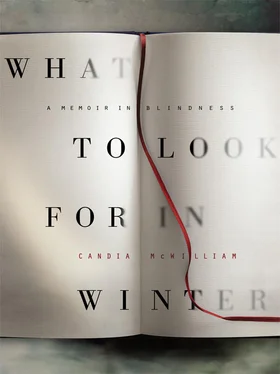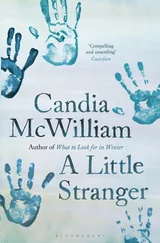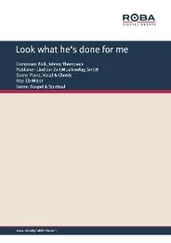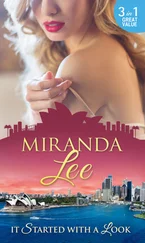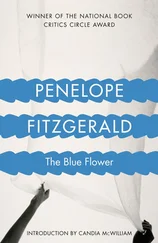Later I sustained two approaches, one from a quietly spoken American girl who turned out to live just off Washington Square with her grandmother and two giant poodles and who became a friend for life, Miss Sarah Montague, gymkhana star and radio performer; the other from a girl I regret having lost touch with, who said, ‘You went to fucking public school, didn’t you?’
I think the truth is that I only went to fucking public school because my mother was dead, and that is the answer to the question I asked some chapters ago, would it all have happened if I had stayed at home? I wouldn’t have fucking talked like this. I might have talked like fucking that, and that in itself might have been a great big fucking relief. Not that, actually, all Scots do swear all the time, nor pace some English critics, does that brilliant writer James Kelman use such language, save where to do so holds to the truth.
If I had stayed at home, I wouldn’t have talked like this and I might have married a nice Scots boy who really could dance (though in the East Coast fashion) and we might have settled down to the couthie Edinburgh life for which, I think, I hanker so, now that I definitively have not lived it.
Scotland itself is zigzagged with strifes and loyalties, with roads that wind north in listlessness, desolation and ancient war; there are many sects and septs of Presbyterianism and many families who raise a glass to the king over the water. I won’t here go into Rangers and Celtic, for I’m ignorant, but so little is the country, so small its population, so deep its habit of talk and of remembrance, that the past lies over and within everything. While it is a hard fact that Papa’s great-grandfather received the Island of Colonsay in lieu of payment of a lapsed debt by Sir John McNeil, it is also true that if to own a boat, as the vulgarism goes, is to stand in a shower tearing up fifty-pound notes, to inherit an island is to stand in a maelstrom doing much the same, with added responsibilities for its human residents. Papa was born in South Audley Street to parents of improbable wealth, deriving in the main from the Canadian Pacific Railway and the Hudson’s Bay Company. His great-grandfather endowed McGill University and Papa said once that he seemed to remember a lintel over a door in the ‘Old Man’s’ house in Montreal that was made of solid gold. His great-grandfather, Donald Smith, became first High Commisioner of Canada and later Lord Strathcona (Gaelic for Glencoe which he also owned) and Mount Royal (which is just Montreal). Goodness knows if this lintel was a metaphor or what he literally saw, but Papa’s own life has been entirely unembittered, as he saw most things except for Colonsay go. He is a born master craftsman.
The words ‘private island’ come nowhere near Colonsay; it is not a plaything but a society, and most of the boats, houses, cars that pertain to the family that accidentally presides amid it with patience, beneficence and nothing short of love, are held together, bodged in some way. Papa is a genius at bodging. So are his children. It’s my sense that they don’t really like things that do not need fixing.
When we were younger, Katie, Caro and I shared clothes. Jane was careful and neat and very sensibly kept us off. Caro had a red jumper knitted for her by Val, Katie a becoming cream jumper knitted by her grandmother with a repeat motif of the Strathcona crest, a beaver chewing its way through a log. I had two jerseys, one of which I’d received for Christmas from Mum and Papa so it was sacred and came out only for evening wear. My other jumper was grey, knitted on needles the size of rolling pins, edged in grey velvet ribbon, large enough for a shire horse and had been thrown out by Daniel Day-Lewis, the weedy younger brother of our friend Tamasin. No. I don’t know where it is now. It disappeared with my dried-out and reassembled lobster, some old love letters, and the Clarendon Press George Herbert, all of which were by my bed, when I ‘grew up’ and Alex and his wife Jane took over the house.
There is a strong bohemian streak in the Howards. Papa’s mother, confusingly known as Oma, really could paint and her many swift oil sketches of the island catch it just so. Papa was brought up with Peter Ustinov, whose mother, Nadia Benois, used to paint with Oma. There are two ‘reciprocal’ paintings made by the two women on a summer day on the island in the nineteen-thirties that hang in the corridor-room on Colonsay. Tulips in a vase, dropped-waist dresses, a departed Hebridean afternoon seen through differing eyes. Many of the Howards’ close relations are artists; one, Linda Kitson, who briefly married her cousin, Papa’s brother Barnaby, was a Falklands War artist. Papa’s sister Didon was a creator in her every gesture and she leaves girl twins who have the very same trait; one of them, lying in Barcelona, felled in her forties by a stroke, is literally drawing herself out of it with pencil and paper. The Howards are not spoilt. Their affection for things is greatly enhanced when that thing is to some degree damaged or, even better, hopelessly broken.
It is my private belief that Papa rather resents things that work perfectly first time. I don’t mean he sabotages them, but he perceives less of a challenge in the spanking new than in the clapped-out old. He is without doubt an artist in wood and metal. It was a sad day when he moved out of the big house and his entire run of Wooden Boat magazine was on the line. He had first subscribed to it aged thirteen. In the end it went, though he has kept the squared notebooks in which he draws inventions and improvements upon machines that have caught his attention. One of the most happy days of my second childhood was spent not actually on Colonsay but off the old A40 in a disused church with Papa, Katie and Caro; we were there to meet one of Papa’s innumerable correspondents. His family used to say of Papa that he kept a steamboat hidden on most canals as other men keep mistresses, but that day we were privileged to enter the largest steam-driven Wurlitzer in the known world. We climbed inside its entrails, saw the real coconut husks that made clip-clop sounds for the movies, and Caro was allowed to play it while Katie and I stood inside and watched the bellows do their elephantine work. Papa, although he is, as I have said, a man resistant to the soapier sides of faith, is a soul whom it is a pleasure to see transported, whether by a Wurlitzer, the Queen of the Night, the way the bark grows on eucalyptus trees, or when a rope goes clean around a cleat.
It is this feeling of docking cleanly that grows more elusive with blindness. I will, if I may, give an account of my mornings at this time of my life. I get up at six, run a bath by ear, turn it off, feel for my electric toothbrush, load it with toothpaste, making sure by smell the toothpaste is not foot cream, do my teeth, get into the cardigan that I know hangs from the bathroom door, go into the room where the cats’ litter trays are kept, find a roll of dustbin bags, somehow discover the mouth of each one and put one inside the other, in case of horrible leaks, fill these with the used litter and any old cat food and the newspaper the cat dishes sit on, give the cats clean litter, wash their dishes and dry them, put clean food into each dish, making sure not to spill any cat food on my hands or I shall smell it all day. I then take the bin bag downstairs, holding the grabs and banisters, to the catacombs of this Victorian house, undo by feel three deadlocks and put the full bin bag in the appropriate dustbin. I re-shut the deadlocks and move slowly towards the kitchen where I know how everything is stowed, though I still fall. I half fill the kettle (I can do this by weight), take the coffee from the upper shelf in the freezer door, shake about as much coffee as a squirrel’s tail would weigh into the cafetière, wait for the water to boil, pour it on to the coffee grounds and commence my daily quarrel with the plunger. By now it will be 7.20 and my bath will be of any temperature at all, so that’s a surprise to look forward to. When first I became blind I was determined to be well groomed, something I have never in my life been before. I’m not sure it’s worked, although I know that I am clean. On my shelves however, await the jumpers of a well-groomed blind woman, each arranged in its own bag with lavender or cinnamon or clove (sovereign historic but useless remedy against moth). My jumpers are arranged from white to black through all the misty colours of grey and pink and blue and lavender and olive that I wear, the naturally occurring dyes of Scotland, where my jumpers were born. In its way my cupboard of jumpers is like Des Esseintes’s organ of perfumes in Huysmans’s Against Nature . In another way it’s just me trying hard to kill two birds with one stone; that is magically to become tidy and, even more magically, to unbecome blind. I did the colour-coding holding open my eyes with my left hand from the top of my forehead, like holding a cracked watermelon together.
Читать дальше
